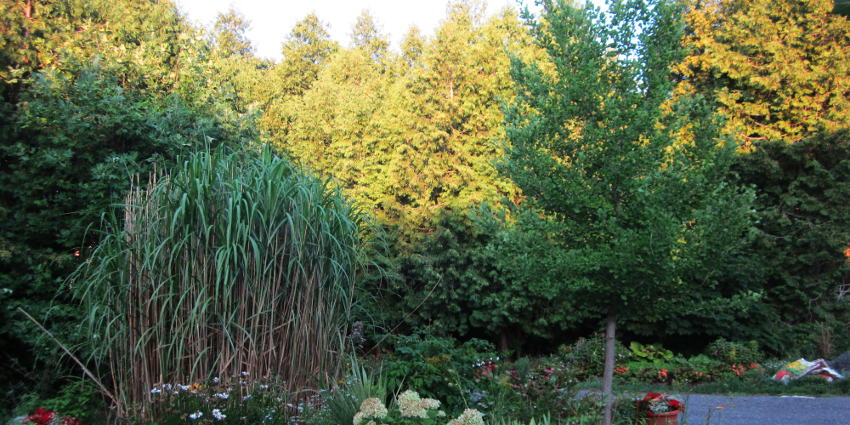Thinking of putting in a new garden? Here are a few tips from experience.
Lots of people come to us looking for ideas. The Internet is a wonderful resource for inspiration to make a beautiful garden. But the Internet isn't always right (which can be ironic since you're reading this on the Internet). Well, here are a few tips and tricks for those of your starting out.
- You will never get rid of weeds "once and for all." We had a customer come in the other day hoping to replace their entire lawn with groundcovers because they didn't like the weeds. The reality is, weeds are far more resilient than most plants you want in the garden, hence they're weeds. This 1985 Garfield strip sums it up perfectly: https://garfield.dale.ro/garfield-1985-june-5.html.
- Replacing your soil will not make your garden better. Remember, top soil is just the stuff they scratch off the surface before a sub-division is built. For the most part, it's not much better than what you probably already have since top soil is already placed around homes when they're built. Top it off and most top-soil has weed seeds. The ones that are weed free are either heat-treated or chemically treated so it probably removed a lot of the good bacteria and micro-organisms you wanted in the first place. Instead add organic matter and mix it with what you have. Manure, peat, compost, etc.. If it's hard soil, use coco-mulch for a few years and work it in each spring. As all that stuff breaks down, it creates the perfect soil.
- There's no such thing as a no-maintenance garden. As I told my young nephew the other day when he wanted to do something the easy way: "Anything worth doing takes work." As much as he thought of a situation where that didn't hold true, he was at a loss. The marketing and advertizing around no-maintenance did more harm to the garden industry than good. You will work in your garden if you want a good garden. How much work depends on your plant selection, the size of the garden, and the type of garden you want.
- Clay isn't bad. There's lots of clay around here. Clay binds nutrients very well and holds on to moisture. Don't try working it when it's dry or it's like concrete. Don't work it when it's wet or you end up with soup. All our fields and strawberry crops are based on clay soil and we've been growing since 1959. Add the compost, manure, peat, and mulch regularly and it will get easier to work, but it's not bad.
- Start small. Creating a giant garden will get ahead of you. Once it does, it's really hard to catch up. It's far easier to expand a garden than reduce it. Pick the basic shape you want, put in the few key plants you want, fill in the gaps with annual flowers (since you're not committed to them for life), then put your planting on pause and just enjoy it. That will give you time to understand the amount of work necessary to maintain the garden you have and you can choose how much to expand over time. Gardens are more an evolution.
- You will fail sometimes. It's the hardest thing to accept, but gardening is a learning experience. We've been growing in the greenhouse for over 30 years and we still have these epiphanies where we realize we've been doing something wrong all this time. It does happen and it will happen. Learn from it and do something different. Don't blame the plant, or the garden centre, or yourself. It could be the weather, it could be an insect, it could be fungus, it could even be the natural life-cycle of the plant, it could be almost anything. Ask questions from people who have experience, learn, and continue on. Don't get discouraged.
- There is no one formula. Everything in the garden is a collection of opinions and templates. We see lots of people with printouts with the formula for the perfect garden. But that may be their perfect garden, not yours. A lot of what's out there is driven by marketing and plant suggestions are very regional. Ottawa and Montreal and Toronto and Prescott all have different weather patterns and a plant that will thrive in one place may not in another. The Internet is global, your garden is local.
- Be patient. There is no instant garden. Plants grow and take time to fill out. Plant perennial plants and shrubs further apart and fill the gaps with annuals or bulbs for colour until they grow to their mature size. Shoving more plants in a small space is just asking for trouble.
I'm sure there are many more tips I could add, but I think the bottom line is to remember that a garden will require work, you will fail sometimes, and it is an evolution. It's counter to the modern digital age. So put down those electronic toys and instructions on the perfect garden out of Vancouver, and just get your hands dirty. You will evolve as much as your garden will.

